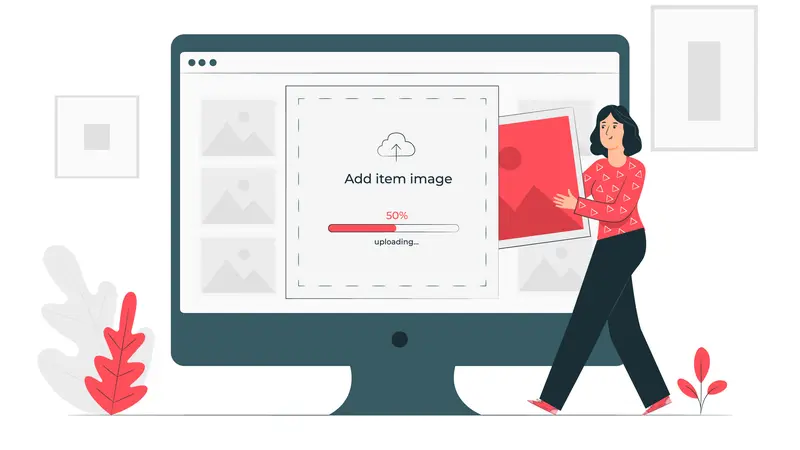In today’s fast-paced real estate market, property management software has emerged as an indispensable tool for property owners and managers. This sophisticated technology streamlines operations, enhances communication, and optimizes financial management, making it easier than ever to handle the complexities of property management. Whether you oversee a single property or an extensive portfolio, property management software offers the solutions needed to improve efficiency and tenant satisfaction.
One of the primary benefits of property management software is its ability to automate routine tasks. From rent collection to lease renewals, the software handles these processes seamlessly, reducing the administrative burden on property managers. This automation not only saves time but also minimizes the risk of human error, ensuring that critical tasks are completed accurately and on schedule. By leveraging property management software, property managers can focus on strategic initiatives rather than getting bogged down by day-to-day operations.
Communication between landlords and tenants is crucial for maintaining positive relationships and ensuring the smooth operation of rental properties. Property management software enhances this communication by providing integrated messaging systems, allowing tenants to submit maintenance requests, pay rent online, and receive important updates effortlessly. This streamlined communication fosters a more responsive and transparent environment, leading to higher tenant satisfaction and retention rates. With property management software, landlords can address tenant needs promptly, creating a more harmonious living experience.
Financial management is another area where property management software shines. The software typically includes comprehensive accounting features that track income and expenses, generate financial reports, and manage budgets. This level of financial oversight is essential for property managers who need to maintain profitability and make informed business decisions. By utilizing property management software, property owners gain real-time insights into their financial performance, enabling them to identify trends, control costs, and plan for future investments with greater confidence.
Marketing and leasing are critical components of successful property management, and property management software provides powerful tools to support these functions. The software allows property managers to list vacancies on multiple platforms, screen potential tenants, and streamline the leasing process. Automated marketing campaigns and online applications simplify the process of attracting and securing high-quality tenants. With property management software, property managers can reduce vacancy rates, fill units more quickly, and ensure a steady stream of rental income.
Data security is a top priority in the realm of property management software. With sensitive tenant information and financial data at stake, robust security measures are essential. Reputable property management software solutions incorporate advanced encryption, secure access controls, and regular data backups to protect against unauthorized access and data breaches. By prioritizing security, property managers can safeguard their data and comply with regulatory requirements, providing peace of mind to both themselves and their tenants.
Scalability is a key feature of modern property management software, making it suitable for property managers of all sizes. Whether managing a handful of units or an extensive property portfolio, the software can adapt to meet the evolving needs of the business. Customizable features and flexible pricing plans ensure that property management software remains a valuable asset as the property management business grows. This scalability allows property managers to expand their operations without outgrowing their management tools.
Integration capabilities are essential for property management software to function seamlessly within existing business ecosystems. The ability to integrate with other software applications, such as accounting systems, CRM platforms, and maintenance management tools, enhances the overall efficiency of property management operations. Property management software that offers robust integration options ensures that property managers can create a unified workflow, reducing the need for manual data entry and minimizing the risk of discrepancies across different systems.
User-friendly interfaces are a hallmark of effective property management software. Intuitive designs and easy navigation ensure that property managers can quickly learn and utilize the software without extensive training. This user-centric approach enhances productivity and reduces the learning curve, allowing property managers to maximize the benefits of the software from day one. By prioritizing usability, property management software ensures that all team members can efficiently perform their tasks, contributing to the overall success of the property management operation.
Customer support and ongoing updates are critical components of property management software offerings. Reliable customer support ensures that property managers can resolve any issues quickly and continue their operations without significant downtime. Additionally, regular software updates introduce new features, improve functionality, and address security vulnerabilities, keeping property management software up-to-date with the latest industry standards. Investing in a property management software provider that offers excellent customer service and continuous improvement guarantees long-term value and reliability.
When selecting the right property management software, it’s important to consider several factors, including the size of your property portfolio, specific feature requirements, budget constraints, and the overall user experience. Conducting a thorough needs assessment and evaluating different software options based on these criteria can help you identify the best solution for your business. Property management software should not only meet your current needs but also have the flexibility to adapt to future growth and changing market conditions, ensuring that it remains a valuable tool for years to come.
Implementation of property management software involves careful planning and execution to ensure a smooth transition from existing systems. Data migration, staff training, and system configuration are critical steps in the implementation process. Collaborating with the software provider to develop a detailed implementation plan can help minimize disruptions and ensure that the new system is integrated effectively into your property management operations. A well-executed implementation of property management software sets the foundation for improved efficiency and enhanced performance.
Integration with existing systems is a vital aspect of deploying property management software. Ensuring that the software can communicate with your current tools and platforms is essential for maintaining seamless operations and data consistency. Whether it’s integrating with your accounting system, CRM, or maintenance management tools, property management software should offer flexible integration options to support your workflow. Effective integration eliminates data silos, reduces manual data entry, and enhances the overall efficiency of property management processes.
The market for property management software is diverse, with a wide range of options available to suit different needs and budgets. Leading solutions like AppFolio, Buildium, and Yardi offer comprehensive features that cater to various aspects of property management, from accounting and leasing to maintenance and tenant communication. Specialized solutions are also available for specific property types, such as residential, commercial, or vacation rentals. Evaluating the strengths and weaknesses of each property management software option can help you choose the best fit for your unique requirements.
Looking ahead, the future of property management software is poised for significant advancements driven by emerging technologies. Artificial intelligence and machine learning are set to enhance the predictive capabilities of property management tools, allowing for more accurate forecasting and proactive decision-making. Additionally, the integration of blockchain technology could revolutionize how property transactions are handled, offering increased security and transparency. These innovations will further transform property management software, making it even more powerful and indispensable for property managers.
Mobile accessibility is becoming increasingly important in property management software, reflecting the need for property managers to access information and perform tasks on the go. Modern property management software solutions offer mobile apps that provide full functionality from smartphones and tablets, enabling property managers to respond to tenant requests, update property listings, and manage financials from anywhere. This mobility enhances flexibility and ensures that property managers can maintain productivity regardless of their location.
Customization is another key trend in property management software development. Property managers have unique needs and preferences, and the ability to tailor the software to meet these specific requirements is highly valued. Customizable dashboards, reporting tools, and feature sets allow property managers to create a personalized experience that aligns with their operational workflows. By offering high levels of customization, property management software ensures that each user can optimize the tool to best support their property management strategy.
Sustainability and green building management are becoming increasingly important in the real estate industry, and property management software is evolving to support these initiatives. Features that track energy usage, manage waste disposal, and monitor sustainability metrics help property managers promote environmentally friendly practices. By integrating sustainability features, property management software not only supports green building standards but also appeals to environmentally conscious tenants, enhancing the overall marketability of the properties.
Data analytics and business intelligence are transforming how property managers use property management software. Advanced analytics tools provide deep insights into tenant behavior, market trends, and operational performance, enabling property managers to make data-driven decisions. By leveraging these insights, property managers can optimize rental pricing, improve marketing strategies, and enhance tenant retention. The integration of data analytics in property management software empowers property managers to achieve better outcomes and drive business growth.
Incorporating Internet of Things (IoT) technology into property management software is another exciting development. IoT devices such as smart thermostats, security systems, and maintenance sensors can be integrated with property management platforms to provide real-time monitoring and control. This integration allows property managers to proactively address maintenance issues, enhance security, and improve energy efficiency. By embracing IoT technology, property management software becomes a more comprehensive solution that addresses the evolving needs of modern properties.
The user experience (UX) design of property management software plays a crucial role in its adoption and effectiveness. Intuitive interfaces, streamlined navigation, and responsive design ensure that users can interact with the software effortlessly. A positive user experience reduces the learning curve, increases user satisfaction, and encourages consistent use of the software’s features. By prioritizing UX design, property management software becomes a more effective tool that enhances overall property management operations.
Security and compliance remain top priorities for property management software providers. As data privacy regulations become more stringent, ensuring that the software complies with laws such as GDPR and CCPA is essential. Property management software must incorporate features that support data protection, including encryption, secure user authentication, and audit trails. By maintaining high standards of security and compliance, property management software helps property managers protect sensitive information and avoid legal pitfalls.
Training and support are critical elements of successful property management software implementation. Comprehensive training programs, detailed user guides, and responsive customer support ensure that property managers can fully utilize the software’s capabilities. Ongoing support and resources help users stay updated with new features and best practices, maximizing the value of property management software. Investing in quality training and support services enhances the overall effectiveness of the software and fosters long-term user satisfaction.
The role of property management software in enhancing tenant experiences cannot be overstated. By providing convenient online portals for rent payments, maintenance requests, and communication, the software improves the overall tenant experience. Satisfied tenants are more likely to renew leases and refer others, contributing to lower vacancy rates and increased revenue. Property management software thus plays a pivotal role in building strong tenant relationships and fostering a positive rental environment.
Sustainability and energy efficiency are becoming key considerations in property management, and property management software is evolving to support these initiatives. Features that monitor energy usage, manage waste disposal, and track sustainability metrics help property managers implement green practices. By integrating these capabilities, property management software not only supports environmental goals but also appeals to eco-conscious tenants, enhancing the property’s marketability and reputation.
In the competitive landscape of real estate, property management software provides a significant advantage by enabling property managers to operate more efficiently and effectively. The ability to automate tasks, manage finances, communicate seamlessly, and leverage data-driven insights sets apart successful property managers from the rest. By adopting property management software, property managers can stay ahead of the curve, adapt to changing market conditions, and achieve long-term success in the industry.
As the real estate market continues to evolve, the future of property management software looks promising with ongoing advancements and innovations. The integration of artificial intelligence, machine learning, and blockchain technology will further enhance the capabilities of property management tools, making them even more powerful and versatile. These advancements will enable property managers to make more informed decisions, automate complex processes, and provide superior services to their tenants, ensuring that property management software remains a vital component of the property management landscape.
In conclusion, property management software is transforming the way property managers operate, offering a comprehensive suite of tools that enhance efficiency, improve tenant satisfaction, and optimize financial performance. From automating routine tasks to providing advanced data analytics, property management software empowers property managers to manage their properties more effectively and achieve greater success. As technology continues to advance, the role of property management software will only become more integral to the real estate industry, driving innovation and excellence in property management practices.



